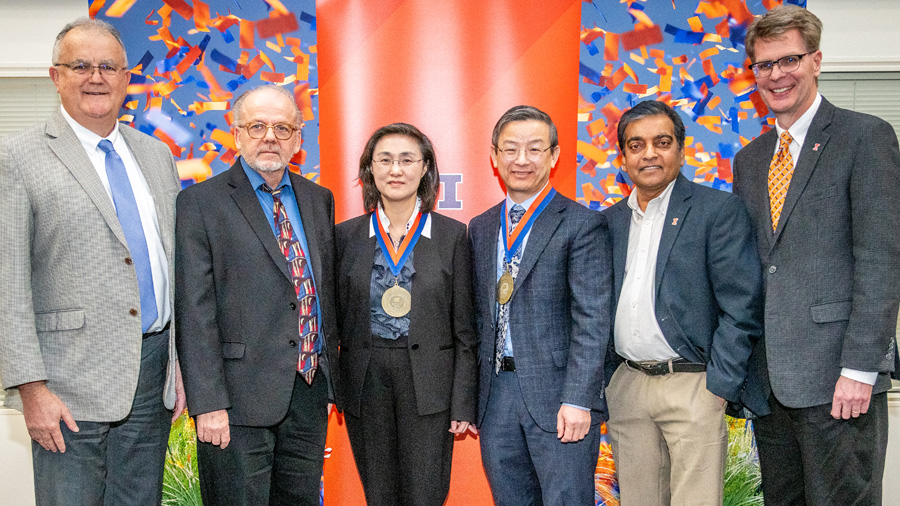
“I always knew I wanted to be a doctor,” said Dr. Amanda Predki. “It just took me a while to figure out that I wanted to be a veterinarian.”
Growing up in Illinois, she never had a pet, though she did gravitate toward animals. Attending horse camp as a child nurtured this interest, and by seventh grade veterinary medicine was on her list of career differentials.
“For quite a while I went back and forth between wanting to pursue the sciences vs. the humanities,” recalled Dr. Predki. “I was naturally good at English and the humanities.”
It was during her third year as an undergraduate at the University of Findlay in Ohio that her passion for veterinary medicine solidified.
Hard, but Worth It

Dr. Predki liked that the University of Illinois veterinary curriculum featured only two exams per quarter, with lots of time devoted to clinical experience. “There’s less front-loaded stress at Illinois than at other veterinary schools,” she said.
Nevertheless, she concedes that veterinary academics are difficult, even for someone like her who is accustomed to working really hard at grades.
“Vet school gets a bad rep because of the difficulty, but even though it was hard, I can look back at everything I have learned and feel good about it,” said Dr. Predki. “After third year, it felt like my brain had switched to clinical applications. I got better at problem solving in the real world.”
She values the soft skills that aren’t typically associated with a veterinary education just as much as the medical and clinical knowledge she gained. In this regard, her strong grounding in the humanities helps her.
“Over the past four years, I have become more self aware,” she said. “The three biggest things I learned at Illinois are advocating for myself, listening to my intuition, and creating healthy boundaries.”
Future May Include Practice Ownership, Advising

Immediately after graduation, Dr. Predki spent time “traveling and living life for a bit.” In June she’ll be moving to Florida to work as a small animal associate veterinarian. The practice offers opportunities to become a part owner, which is an option that interests her.
She also sees herself working with pre-vet students someday, whether that’s as a volunteer or within an undergraduate setting.
“Advising is really important. I had great advisors, but not all students are so lucky,” she said. “Students need to understand that veterinary medicine isn’t the only career option if you love animals. But if you do want to pursue this field, you can find a way.”
Also, as her own path demonstrates, you don’t need to grow up with animals to succeed in veterinary medicine.




